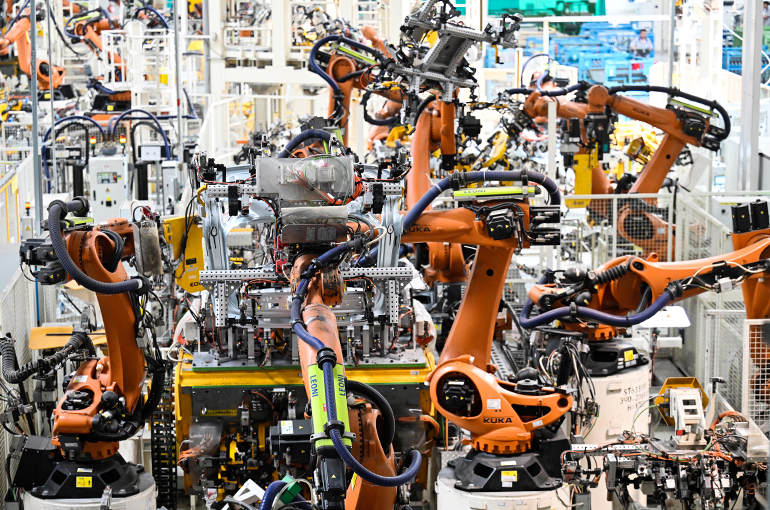 China’s Factory Activity Falls for Sixth Straight Month as Pace of Decline Slows
China’s Factory Activity Falls for Sixth Straight Month as Pace of Decline Slows(Yicai) Sept. 30 -- Activity in China’s manufacturing sector fell for the sixth month in a row in September, but the rate of decline eased for a second month as policies to boost demand continued to take effect and the impact of extreme hot and rainy weather subsided.
The manufacturing purchasing managers’ index came in at 49.8 this month, up from 49.4 in August, according to data released by the National Bureau of Statistics today. A reading below 50 indicates contraction.
The PMI fell into contraction territory in April amid an escalation in China-US trade tensions. It was 49 in April, 49.5 in May, 49.7 in June, and 49.3 in July.
Production sub-index rose for the fifth month in a row, climbing to 51.9 from 50.8, the NBS data showed. The procurement sub-index rose for the second consecutive month to 51.6 from 50.4. New orders remained in contraction but improved to 49.7 from 49.5. Employment also continued to contract but more slowly, coming in at 48.5, up from 47.9.
The effects of government policies aimed at stabilizing economic growth have become more apparent, said Zhang Liqun, a special analyst at the China Federation of Logistics and Purchasing. Output and operating activity show signs of recovery, but prices continue to fall back and orders remain below the boom-bust line, indicating that demand shortfalls remain a key problem, he added.
Looking ahead to the fourth quarter, economic policies are expected to be further strengthened, said Wen Tao, an analyst at the China Logistics Information Center.
The National Day holiday that starts tomorrow and the e-commerce promotional season will boost demand for consumer goods, while stepped-up infrastructure building will drive demand for raw materials and equipment, Wen noted. As a result, manufacturing activity is expected to grow steadily, he added.
The non-manufacturing PMI, which includes construction and services, fell to 50 in September from 50.3, per the NBS data.
The services PMI fell to 50.1 from 50.5, mainly due to the off-season in consumer services following the summer. However, with the arrival of the National Day holiday, the sector is expected to rebound, said Wu Wei, another expert at the CLIC.
The composite PMI output index, which combines the manufacturing PMI’s production sub-index and the non-manufacturing PMI, rose for the second straight month to 50.6 from 50.5 in August and 50.2 in July, indicating accelerated production and business activities, according to the NBS.
Editors: Dou Shicong, Futura Costaglione